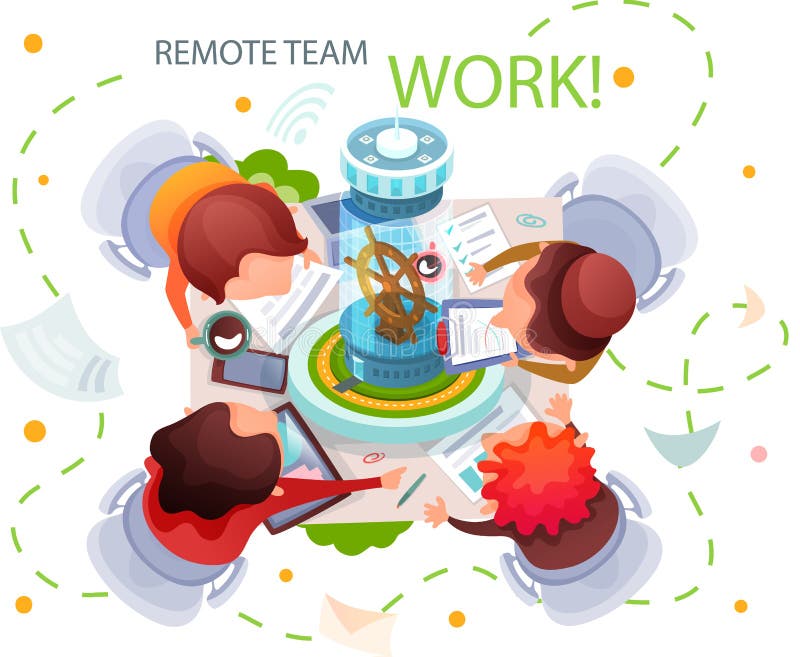Discover How Remote Professionals Shape the Future of Work
Discover How Remote Professionals Shape the Future of Work
Blog Article
How to Construct a Successful Group of Remote Professionals
In today's progressively electronic landscape, the capacity to develop an effective group of remote experts is necessary for companies aiming to prosper. It is the subtler facets-- like supporting a cohesive firm society and advertising constant knowing-- that can really set a remote team apart.
Define Clear Goals and Assumptions
Frequently establishing clear objectives and expectations is vital for the success of a remote team (Remote Professionals). Without these elements, team participants might experience confusion regarding their functions, responsibilities, and the general objectives of the project. This obscurity can cause lowered performance, misaligned efforts, and eventually, job failure
To specify clear objectives, it is important to employ the SMART requirements-- Particular, Measurable, Attainable, Appropriate, and Time-bound. This strategy makes certain that each goal is well-defined and can be efficiently connected to all team members. It is crucial to align private objectives with the overarching vision of the company, fostering a feeling of purpose and commitment among team members.

Foster Effective Interaction

Regular check-ins and team meetings can aid maintain a solid interaction circulation, allowing members to share progression updates and discuss any barricades they might come across. It is additionally important to acknowledge that various people might have varying interaction styles. Comprehending and suiting these distinctions can lead to more significant communications and an extra natural group dynamic.
Moreover, clarity is necessary in all kinds of communication, whether written or verbal. Motivate employee to express their concepts succinctly and to seek clarification when needed. This approach guarantees and reduces misunderstandings that everybody is on the same page. By prioritizing reliable communication, remote teams can enhance productivity, strengthen relationships, and create a more comprehensive job atmosphere, inevitably resulting in higher success in achieving typical goals.

Use the Right Tools
To support reliable communication within a remote team, it is necessary to utilize the right tools that promote collaboration and enhance operations. The choice of tools can significantly impact efficiency, making certain that staff member continue to be connected and engaged despite geographical ranges.
Begin by implementing project more information management software, such as Trello or Asana, to organize tasks, established deadlines, and track development. This cultivates accountability and offers exposure into each member's contributions. Furthermore, interaction systems like Slack or Microsoft Teams provide immediate messaging abilities, allowing real-time conversations and fast decision-making.
Video clip conferencing tools, such as Zoom or Google Meet, are necessary for in person communications, which aid construct relationship and reinforce partnerships amongst team members. Moreover, paper sharing and storage services like Google Drive or Dropbox guarantee that essential data are editable and obtainable by all group members, promoting cooperation on tasks.
Incorporating these devices successfully produces an environment where remote specialists can prosper. By choosing the right modern technology, companies can enhance interaction, enhance project monitoring, and eventually achieve their objectives much more effectively.
Develop a Strong Business Culture
Developing a strong firm culture within a remote group is important for cultivating interaction and commitment among workers. A distinct culture supplies a sense of belonging and shared function, which is critical when team participants are spread across different areas. To cultivate this culture, leaders need to establish clear values and assumptions that reverberate with employees, making sure that every person understands the objective and vision of the company.
Normal interaction is crucial in reinforcing this culture. Using video clip telephone calls, group meetings, and informal check-ins can assist advertise and maintain connections transparency. Furthermore, commemorating success, both big and small, strengthens a society of recognition and gratitude.
Motivating group cooperation via virtual platforms not only improves efficiency however likewise cultivates social partnerships - Remote Professionals. Organizing virtual team-building activities can additionally reinforce bonds among team participants, making them really feel extra integrated into the business
Last but not least, it is necessary to pay attention to worker comments and adapt as needed. Going Here By showing that their voices issue, leaders can construct trust and loyalty, ultimately developing a thriving remote work setting where staff members really feel valued and engaged.
Encourage Continuous Learning and Growth
A solid firm culture lays the groundwork for encouraging continual understanding and advancement within a remote team. By fostering visit this website a setting that values development, organizations can empower staff members to improve their skills, adapt to brand-new difficulties, and eventually contribute better to team objectives.
To advertise constant knowing, consider carrying out regular training sessions, workshops, and webinars that line up with both individual job goals and organizational demands. Take advantage of technology to assist in access to e-learning systems, guaranteeing that sources are readily offered for remote employee.
Encourage expertise sharing by establishing mentorship programs and developing forums for staff members to exchange understandings and best methods. Rewarding and identifying team members that actively involve in learning efforts reinforces the value of growth and motivates others to adhere to suit.
In addition, carrying out normal responses sessions can assist recognize ability gaps and areas for renovation, enabling tailored advancement strategies. By prioritizing constant learning and advancement, remote groups can grow a society of development, durability, and flexibility, which are essential for navigating the complexities of today's service landscape.
Verdict
To conclude, the facility of a successful remote team depends upon the integration of clear goals, effective communication, appropriate tools, a robust company society, and continual learning opportunities. By aligning private payments with organizational objectives and cultivating an environment of visibility and cooperation, remote specialists can flourish. Remote Professionals. The implementation of these strategies not just boosts group cohesion but also drives inspiration, eventually causing enhanced performance and success in a remote functioning landscape
It is the subtler facets-- like nurturing a cohesive firm culture and advertising continual discovering-- that can really set a remote group apart.Efficient communication is the cornerstone of a growing remote group. By prioritizing effective interaction, remote teams can improve productivity, strengthen relationships, and develop a more comprehensive job atmosphere, ultimately leading to better success in accomplishing common objectives.
Producing a solid business culture within a remote group is necessary for fostering interaction and commitment among staff members.In final thought, the establishment of an effective remote team pivots on the assimilation of clear goals, efficient interaction, ideal devices, a durable company society, and continuous discovering opportunities.
Report this page